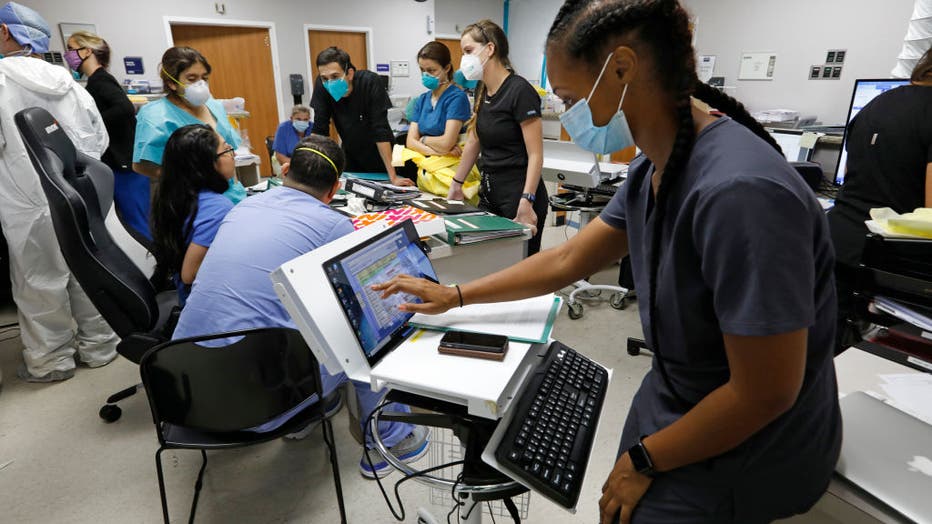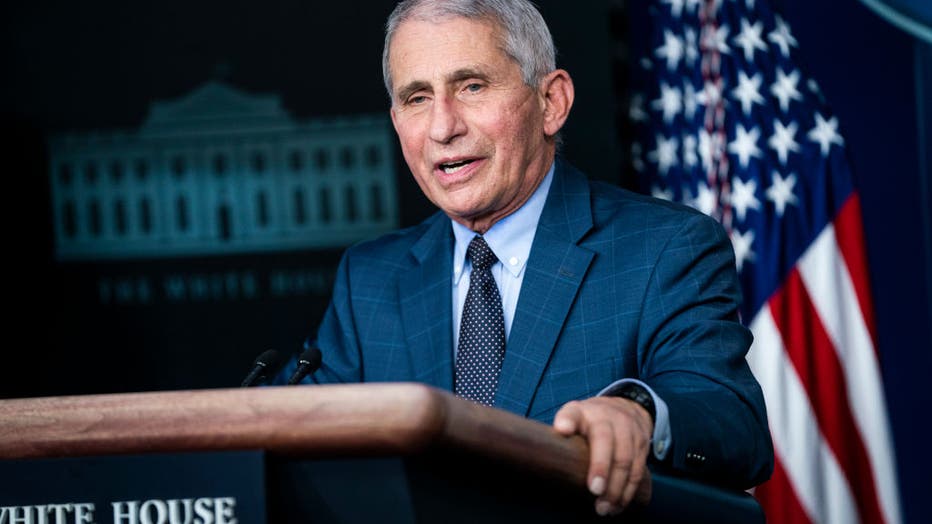Surge of medical school applications amid COVID-19 pandemic dubbed ‘Fauci effect’
Applications for medical school have seen a significant increase in 2020 amid the COVID-19 pandemic, according to the Association of American Medical Colleges (AAMC).
The number of applications submitted already shows a striking increase compared to the same time last year.
“So far, there are more than 7,500 additional applicants nationwide, according to data from the American Medical College Application Service (AMCAS), which processes submissions for most U.S. medical schools. That’s an increase of nearly 18%,” according to AAMC.
Nearly a dozen medical schools have seen an increase in applications of at least 25% in 2020.
“We’ve been experiencing a leveling off in recent years, so the large increase was quite surprising,” said AAMC Chief Services Officer Gabrielle Campbell. “It’s also inspiring.”
The reason behind the increase is not known, but AAMC speculates that some of the drive is due to the current COVID-19 pandemic, as well as the heroism front-line health care workers have shown throughout the world.
“I make an analogy to the time after 9/11, when we saw an increase in those motivated to serve this country militarily,” said Geoffrey Young, Ph.D., AAMC senior director for student affairs and programs. “This certainly seems like a significant factor this year.”

FILE - Medical students and staff members on the COVID-19 ward at United Memorial Medical Center gather to go over patients' status at the start of their shift.
RELATED: Canadian health officials approve Pfizer's COVID-19 vaccine
“We can’t say for sure why so many more students have applied this year. Some students may have had more time for applications and preparing for the MCAT exam after their college courses went online. Some may have been motivated by seeing heroic doctors on the front lines of the COVID-19 pandemic. There may be other explanations as well. We survey incoming medical school students every year and will be able to learn more about why this group of students decided to apply, though we won’t have that data until next year,” Young added in an emailed statement.
Several reports, as well as “several of our member medical schools’ admission staff,” according to AAMC, are referring to the sudden increased interest in work in the medical field as the “Fauci effect,” named after Director of the National Institute of Allergy and Infectious Diseases Dr. Anthony Fauci.

FILE - Director of the National Institute of Allergy and Infectious Diseases Dr. Anthony Fauci speaks in a news briefing with member of the White House Coronavirus Task Force.
According to several medical school applicants who spoke with AAMC, their motivation to apply was not strictly for job security, but a desire to help their communities during a time of crisis.
“During COVID-19, my hunger to help continues to grow,” Alan Mauricio De Leon told AAMC. Mauricio teaches at a charter school in Houston and said he was moved to apply when he noticed a student sleeping in his car. “I want to be a change agent to bring equitable, effective care to my community.”
Another applicant, Creson Lee, 24, was inspired after seeing hospital staff working tirelessly at Penn Medicine’s COVID-19 testing site, according to AAMC.
“Testers would be out there all day under the sun wearing full gear, drenched in sweat,” Lee told AAMC. “They’d always try to keep positive, sometimes putting on a silly PPE fashion show in the driveway.”
RELATED: New airflow study shows how to prevent COVID spread inside a vehicle
And these future doctors are not just applying on a whim — applications take months and months of preparation, as well as rigorous testing.
“Even in a usual cycle, applying to medical school is no simple matter. Candidates spend many months preparing for the MCAT exam, writing essays, and collecting recommendations. Applying for entry in 2021 meant completing the AMCAS application in the spring or summer of 2020, followed by individual schools’ required secondary applications. Once applications are completed, applicants anxiously await interview invitations, which could extend into the spring of 2021,” according to AAMC.
As the U.S. endures another wave of COVID-19 cases amid the holiday season, hospitals and medical staff are being stretched thin.
On Nov. 29, Fauci said that the U.S. may see a “surge upon a surge” of the coronavirus in the weeks after Thanksgiving, and he does not expect current recommendations around social distancing to be relaxed before Christmas.
The leading infectious disease expert also warned the public that the country would not “all of a sudden turn around.”
“So clearly in the next few weeks, we’re going to have the same sort of thing. And perhaps even two or three weeks down the line... we may see a surge upon a surge,” he said.
Despite the grim observation, a glimmer of hope remains on the horizon as the U.S. comes closer to approving the Pfizer COVID-19 vaccine for mass use.
RELATED: After coronavirus vaccination, Russians warned to avoid alcohol for 2 months
U.S. regulators Tuesday released their first scientific evaluation of Pfizer’s vaccine and confirmed it offers strong protection, setting the stage for the government to greenlight the biggest vaccination effort in the nation’s history.
The analysis by Food and Drug Administration scientists comes ahead of a Thursday meeting where the agency's independent advisers will debate if the evidence is strong enough to recommend vaccinating millions of Americans. A final FDA decision and the first shots could follow within days.
The Associated Press contributed to this report.


